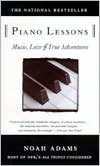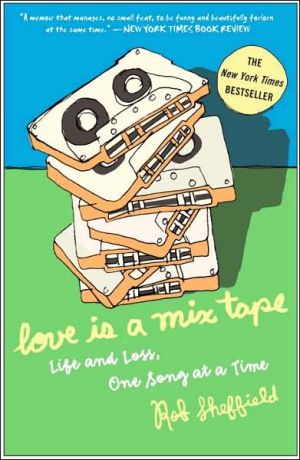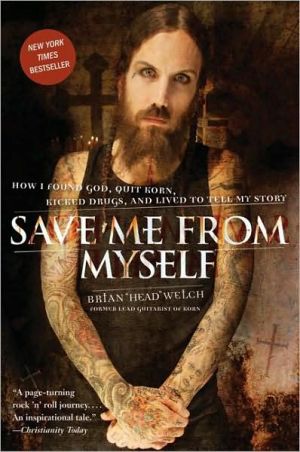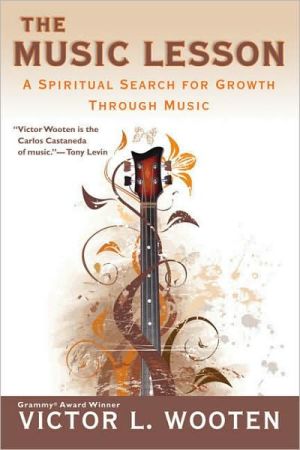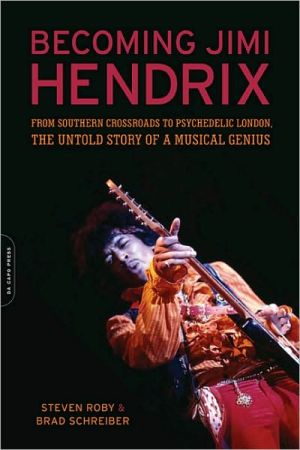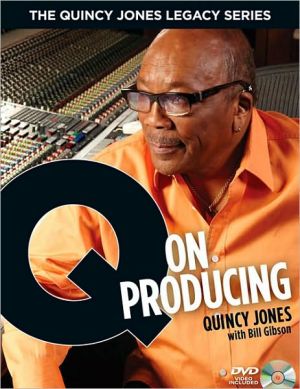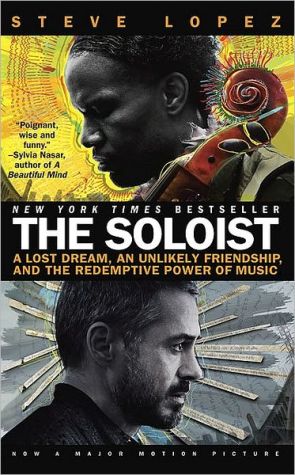Piano Lessons: Music, Love, And True Adventures
Piano Lessons is Noah Adams's delightful and moving chronicle of his fifty-second year—a year already filled with long, fast workdays and too little spare time—as he answers at last a lifelong call: to learn to play the piano. The twelve monthly chapters span from January—when after decades of growing affection for keyboard artists and artisans he finally plunges in and buys a piano—through December, when as a surprise Christmas present for his wife he dresses in a tuxedo and, in...
Search in google:
Piano Lessons is Noah Adams's delightful and moving chronicle of his fifty-second year—a year already filled with long, fast workdays and too little spare time—as he answers at last a lifelong call: to learn to play the piano. The twelve monthly chapters span from January—when after decades of growing affection for keyboard artists and artisans he finally plunges in and buys a piano—through December, when as a surprise Christmas present for his wife he dresses in a tuxedo and, in flickering candlelight, snow falling outside the windows, he attempts their favorite piece of music, a difficult third-year composition he's been struggling with in secret to get to this very moment.Among the up-tempo triumphs and unexpected setbacks, Noah Adams interweaves the rich history and folklore that surround the piano. And along the way, set between the ragtime rhythms and boogie-woogie beats, there are encounters with—and insights from—masters of the keyboard, from Glenn Gould and Leon Fleisher ("I was a bit embarrassed," he writes; "telling Leon Fleisher about my ambitions for piano lessons is like telling Julia Child about plans to make toast in the morning") to Dr. John and Tori Amos.As a storyteller, Noah Adams has perfect pitch. In the foreground here, like a familiar melody, are the challenges of learning a complex new skill as an adult, when enthusiasm meets the necessary repetition of tedious scales at the end of a twelve-hour workday. Lingering in the background, like a subtle bass line, are the quiet concerns of how we spend our time and how our priorities shift as we proceed through life. For Piano Lessons is really an adventure story filled with obstacles to overcome and grand leaps forward, eccentric geniuses and quiet moments of pre-dawn practice, as Noah Adams travels across country and keyboard, pursuing his dream and keeping the rhythm. Publishers Weekly "It is my dream, when I touch the keys, to release the notes. It is music waiting there," writes Adams in this delightful recreation of the year he recently spent trying to learn to play the piano and, most specifically, trying to master Robert Schumann's Trumerei. The experience may have been frustrating for the author, but he is such an unself-conscious raconteur that he catches the reader's sympathy and amusement at his befuddlement as to why he, a 51-year-old, would be so foolhardy as to suddenly spend $11,375 for an instrument he neither knows how to play nor, given the pressures of his job as host of NPR's All Things Considered, has time to practice. Figuring that he has only 20 minutes a day to devote to activities unrelated to his work, he sets out to become a pianist, first studying with a computer program, then a sight-reading system on tapes and finally, in the most captivating episode here, at a 10-day adult music school in Vermont run by the family of the saleswoman who sold him his Steinway. Adams interrupts his practice sessions throughout the book to reminisce about pianists he admires, educate us about keyboard instruments, tell us about his domestic life with his wife, Neenah, and about his job and related travels. At year's end he feels confident enough to play the Schumann for his wife as a Christmas present. A piece Horowitz could play in two minutes and 32 seconds Adams needs 20 minutes to complete. No matter, for his performance brings his audience of readers to its feet with shouts of "Bravo!" (Mar.)
Play the first note right. The morning—sunrise, eleven degrees, wind dancing across overnight snow—waits for a perfectly struck single note.\ "Traumerei," by Robert Schumann, begins with middle C (a year ago this was the only note I could find on the piano). The next note is an F in the right hand joined by an F in the bass; then a cautious chord in both hands and five ascending treble notes lift the song into the air. There's a quick, deep pulse in my throat and a fast breath, and I'm smiling, watching the page, trying to stay up with the melody.\ I've come to a quiet place in southern New Hampshire to write about the past year and my involvement with the piano. Often in the early mornings I'll bring a thermos of coffee and my music here to the library, a small stone building at the edge of a field. I'll unlock the heavy front door, turn up the thermostat, take the cover off the piano—it's a Steinway B Model, made in Hamburg, West Germany, in 1962—and play for an hour or so. The ivory-topped keys are cold at first, and so are my hands. I start with exercises, playing in unison an octave apart, up and down the keyboard. Sometimes I notice a tremble, a shaking in the last two fingers of my left hand. In the morning light, though, my hands look young. (The backs of my hands have always seemed old, wrinkled; once at a grade-school Halloween party someone recognized me by my hands, not covered by my ghost costume.)\ Then I'll practice "Traumerei." This piece—only two pages, three minutes long—is teaching me piano. There are technical knots to be worked loose, clues to mysteries hiding in the notation. I would be happy to play it several thousand times.\ Vladimir Horowitz used to play "Traumerei" as an encore; he said it was a masterpiece. Robert Schumann was only twenty-seven when he wrote the music, and I have the feeling he finished it in a couple of hours, one afternoon. It seems a passionate time in his life; in a letter to a friend he said: "I feel I could almost burst with music—I simply have to compose." Schumann was in love with Clara Wieck, a young piano virtuoso. Her father disapproved and had taken Clara away on a recital tour. "Traumerei" is one of thirteen short pieces in a collection called Kinderszenen (Scenes from Childhood). As Schumann put it, the songs were "reminiscences of a grown-up for grown-ups." (Traumerei translates as "reverie.") And he said in a letter to Clara, "You will enjoy them—though you will have to forget that you are a virtuoso...they're all easy to carry off." Schumann told Clara these pieces were, "peaceful, tender and happy, like our future."\ I can see him at his writing desk, and piano, in Leipzig. Excited, dreaming of Clara, his own career as a pianist doomed by a hand injury but by this time knowing that he could be a composer. Twenty-seven years old! Not ten years before, he was a college student, writing home to his mother asking for more money.\ I am living like a dog. My hair is yards long and I want to get it cut, but I can't spare a penny. My piano is terribly out of tune but I can't afford to get a tuner. I haven't even got the money for a pistol to shoot myself with....\ Your miserable son,\ Robert Schumann\ He loved drinking and cigars. It seems a historical rumor that he had syphilis. He was probably manicdepressive early as an adult, and later suicidal. He heard hallucinations. "He is in terrible agony," his wife, Clara, wrote in her diary. "Every sound he hears turns to music. Music played on glorious sounding instruments, he says, more beautiful than any music ever heard on earth. It utterly exhausts him."\ Robert Schumann died in a mental asylum, at age forty-six. He starved himself to death. Clara did see him, once, as he was dying, but he was kept away from his family for two years. A visitor once peered through an opening in his door and saw him playing a piano, lost apparently in improvisation, but playing music that made no sense. As I sit at this piano in New Hampshire, I have outlived Schumann by six years.\ I bought a piece of granite the other day, from a monument company across the road from the town cemetery. I gave the guy twenty dollars and put the "surveyor's post" in the back of my station wagon. Granite is heavy; I don't know why I was surprised. The post is two feet high and about four inches square, with two rough sides and two that have been trimmed smooth. I don't think I'll have to explain this to Neenah, my wife. That the permanence of the granite appeals to me, that the years going by so quickly need marking, with piano lessons and stone. "Oh, that's a good thing to bring back from New Hampshire," she'll say.\ I noticed the posts when I was out running, before lunchtime, along the town streets and then out a bit into the country. You'd see them at the corner of a yard by the driveway. The older houses would have large granite posts out front, sometimes chiseled with a street number. And you'd see the odd stub of a post marking a boundary, the stone weathered and chipped by lawn mowers or snow blades. When Robert Schumann died, in 1856, granite buildings in this town had been standing for ten years.\ There's not quite enough light on the piano and I have to squint to see the faint marking "a tempo" at the end of the first eight measures of "Traumerei," meaning a return to normal after the slowing of ritard. I've repeated these measures, with some parts a bit softer, taking a teacher's advice: If you don't have something different to say in the repeat, why bother playing it? The tricky middle section waits, a difficult passage in the bass clef, a climb to the treble for another. I remember to relax my shoulders and try to make my hands heavier and pretend these are my favorite parts. It's whistling past the graveyard—and it almost works. I play one chord that's not sounded clearly, I forget to hold an A in the left hand, my foot hits the sustain pedal to slur over a mistake in fingering, but the notes are correct, and there's still a singing quality to the melody.\ It's a lovely-sounding piano. A seven-foot grand, shiny mahogany. I have the top all the way up, as you would for a concert. It is my dream, when I touch the keys, to release the notes. It is music waiting there, and for me it is as real as the blown snow against the windows, and the evening's quarter moon rising through a cold fog, or the stories told of wolves that lived on nearby Mount Monadnock, sheltering in the red oak trees. Robert Frost wrote about valleys and mountains like these and once of a farmer whose land was so high up that his neighbors could watch the light of his lantern as he went about his chores.\ I can feel my shoulders tightening again as I get close to the end of"Traumerei." I try to sway a bit on the piano bench, and I sing out loud with the phrases. The opening theme returns, starting with middle C. Then up to a solid, proud seven-note chord and (ritardando) a stately, quiet finish. There is a fermata over the final chord: a black dot with a half circle on top. A "bird's eye" musicians call it. The symbol means, "Hold it as long as you want to, you've earned it." And there's a pedal marking at the bottom; the pedal goes down as you play the chord so all the other Fs and As on the keyboard sound in sympathetic resonance.\ I gently release the pedal and the final, whispering tones are dampened and lost in the warming rush of air from the furnace. There's a small puddle of water from my boots on the flagstone floor. The sunlight has now reached the trees at the edge of the field.\ On the shelves around the piano are bound volumes of sheet music, Strauss and Wagner, Mozart. Schumann's works are here, in several volumes. I can play one of his songs, imperfectly (I've surely played "Traumerei" more times than he did), and it's really the only piece of music that I've learned. But it was an unanticipated, almost reckless year. I was at first surprised and delighted by the piano, then daunted, then discouraged. By the fall I had almost given up. By October's end, though, I was learning. In November and December, as now, I wanted to spend all my time practicing.\ I'll take the granite post back home to Washington and, when the weather warms, dig a hole for it at the edge of the garden, You could set your coffee cup on top of the post, or a trowel.\ I'll play the piano for my wife, early in the morning, and tell her about my adventures.\ N. D. A. (February 1995) The MacDowell Colony Peterborough, New Hampshire
AcknowledgmentsIntroductionJanuary: Why does a fifty-one-year-old man decide he has to have a piano?1February: An extrafine Taos morning and a ten-thousand-dollar phone call13March: Getting past middle C with a computer looking over my shoulder23April: The oldest piano in the world plus the sweet inspirations of rock and roll43May: John Grisham? I've met him. He's rich. Bet he can't play the piano65June: The attack of the humidity monster and a songwriter's million-selling moment85July: Throwing a firefly to Kansas could be easier than learning "Misty"105August: I'm riding this piano bicycle through the puddles, and there's a big wet streak up my back123September: An assignment in Ireland, two weeks off in Maine. What's a piano?143October: Salvation at a music camp, but they make me play in front of people165November: A Vermont guy who loves free pianos and a New York teacher who adores Steinways203December: My wife falls in love with a piano player in a tuxedo, and the night is still young223Afterword245References and Reading249
\ Publishers Weekly - Publisher's Weekly\ "It is my dream, when I touch the keys, to release the notes. It is music waiting there," writes Adams in this delightful recreation of the year he recently spent trying to learn to play the piano and, most specifically, trying to master Robert Schumann's Trumerei. The experience may have been frustrating for the author, but he is such an unself-conscious raconteur that he catches the reader's sympathy and amusement at his befuddlement as to why he, a 51-year-old, would be so foolhardy as to suddenly spend $11,375 for an instrument he neither knows how to play nor, given the pressures of his job as host of NPR's All Things Considered, has time to practice. Figuring that he has only 20 minutes a day to devote to activities unrelated to his work, he sets out to become a pianist, first studying with a computer program, then a sight-reading system on tapes and finally, in the most captivating episode here, at a 10-day adult music school in Vermont run by the family of the saleswoman who sold him his Steinway. Adams interrupts his practice sessions throughout the book to reminisce about pianists he admires, educate us about keyboard instruments, tell us about his domestic life with his wife, Neenah, and about his job and related travels. At year's end he feels confident enough to play the Schumann for his wife as a Christmas present. A piece Horowitz could play in two minutes and 32 seconds Adams needs 20 minutes to complete. No matter, for his performance brings his audience of readers to its feet with shouts of "Bravo!" (Mar.)\ \ \ \ \ Library JournalThere must be thousands of adults who have always wanted to play piano but just never got around to it. This book is by one who did. It's part autobiography, and, since the author is host of National Public Radio's All Things Considered, the result is a look into an interesting life. It's also part journal of Adams's first year with the piano-buying it, practicing and not practicing it, and various attempts at learning to play it, ranging from the solitude of the Miracle computer system to the companionship of a stint at the ten-day Autumn Sonata workshop in Bennington. This thoughtful book is sprinkled with history of the piano and pianists, and there are also excerpts from on-air interviews with pianists ranging from Lew Fleisher to Tori Amos, from Dr. John to Lorie Line. An absorbing book for anyone who's ever played piano or just wanted to; highly recommended. [Previewed LJ 12/95.]-Michael Colby, Univ. of California, Davis\ \ \ Kirkus ReviewsA report on surviving the midlife crisis while tickling the ivories.\ The stereotypical yuppie drives a Volvo, vacations in New England, has a really fulfilling job, and listens religiously to "All Things Considered" on NPR. Noah Adams, we learn in this rambling journal, drives a Volvo, vacations in New England, and has a really fulfilling job cohosting "All Things Considered." This book documents a year in Adams's life spent pursuing a dream: to become proficient at the piano. Freaked by the thought that he's 51 years old ("I have outlived Schumann by six years," he frets), Adams is even more shaken up when he reads the obituary of Lewis Thomas, only to learn that they both shared a passionate desire to learn how to play the piano—only Thomas didn't live long enough to fulfill his dream. Goaded into action by the shadow of the big "D," Adams scrapes up enough spare change to purchase a new Steinway (although, he assures us, it was the cheapest one on the lot), along with some fancy computer software. His position as a radio talk meister gives him the opportunity to interview a slew of keyboard wizards, from popsters like Tori Amos to the classical prodigy Leon Fleisher, who, after losing the use of his right hand due to a repetitive-stress injury, has made a new career as a one- handed recitalist. However, Adams has little background in piano pedagogy or performance, so much of what he relates is pretty basic. Meanwhile, he flits from system to system, now attempting a mail-order course in improvisation, now dipping into a week-long intensive course in Vermont. The book (and year) ends triumphantly when Adams surprises his wife with a Christmas Eve recital.\ Warm and fuzzy reading from a warm and fuzzy guy; just be happy that you don't have to hear him play.\ \ \
